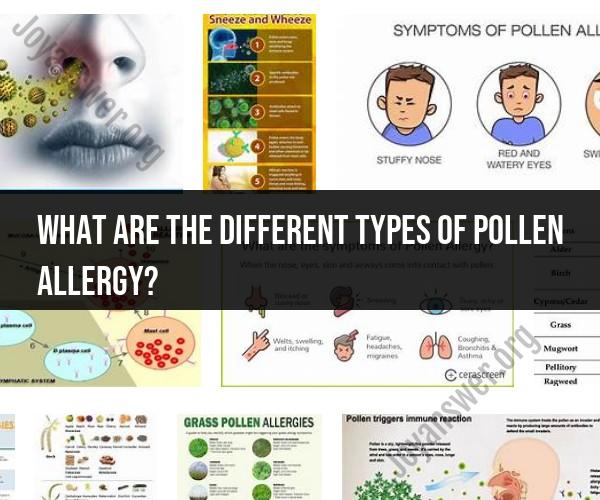What are the different types of pollen allergy?
Pollen allergies, also known as hay fever or allergic rhinitis, affect millions of individuals worldwide. Understanding the different types of pollen and their effects is crucial for managing and alleviating allergy symptoms. In this article, we delve into the world of pollen allergies and explore various pollen types that can trigger allergic reactions.
Understanding Pollen Allergies
Pollen allergies occur when the immune system reacts to pollen particles as harmful invaders, leading to symptoms such as:
- Sneezing
- Runny or stuffy nose
- Itchy or watery eyes
- Scratchy throat
Common Pollen Types
Various plants release pollen into the air, but certain types are more likely to trigger allergies:
1. Tree Pollen
Tree pollen allergies are prevalent in the spring when trees release pollen into the air. Common allergenic trees include oak, birch, cedar, and pine.
2. Grass Pollen
Grass pollen allergies typically peak during late spring and early summer. Grasses like Bermuda, ryegrass, and Timothy grass are common triggers.
3. Weed Pollen
Weed pollen allergies can affect individuals from late summer to fall. Ragweed, sagebrush, and lamb's quarters are examples of allergenic weeds.
Regional Variations
Pollen seasons vary based on geographical location:
1. Urban vs. Rural
Urban areas may have fewer trees and more concrete, potentially reducing pollen exposure. In rural areas, fields and forests contribute to higher pollen levels.
2. Climate and Geography
Warmer climates may experience longer pollen seasons, while coastal regions may have lower pollen counts due to breezes from the sea.
Managing Pollen Allergies
To manage pollen allergies effectively, consider these strategies:
- Monitor pollen forecasts and stay indoors during peak pollen times.
- Keep windows closed to prevent pollen from entering your home.
- Use air purifiers to filter pollen particles from indoor air.
- Practice good hygiene, including washing clothes and showering after spending time outdoors.
Conclusion
Demystifying pollen allergies involves understanding the various types of pollen and their effects on allergy sufferers. By recognizing the common pollen triggers and implementing effective management strategies, individuals can reduce the impact of pollen allergies and enjoy better quality of life, even during peak pollen seasons.













